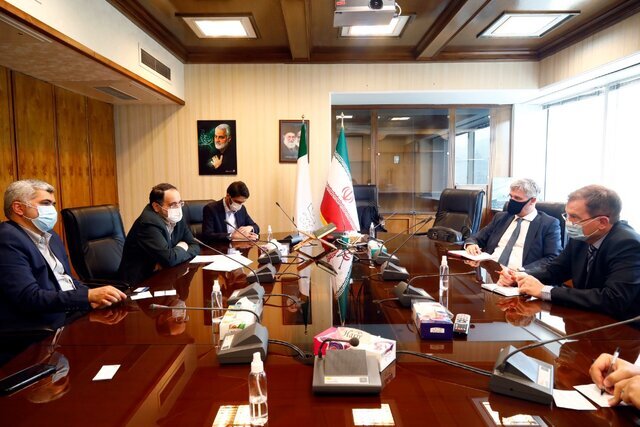Iran, Hungary to develop scientific co-op

TEHRAN – The head of the Majlis Research Center Babak Negahdar, and Hungarian Ambassador to Tehran Zoltan Varga-Haszonits, stressed the need to expand scientific cooperation between the two countries.
In a meeting on Tuesday in Tehran, the two officials expressed hope to see the expansion of relations and interactions between the two nations in various economic, commercial, industrial, and scientific fields.
Negahdar said that the presence of nearly 2,500 Iranian students in Hungarian indicates favorable conditions for scientific cooperation.
With more than a quarter of a century of activity in providing expert and consulting services to the Islamic Parliament of Iran, the Research Center is today considered an advisory arm of the legislature and one of the most important research centers in the country, he explained.
Varga-Haszonits also for his part expressed hope that through interaction and dialogue, the ground for the exchange of experiences in the field of parliamentary research work will be provided.
Science diplomacy at highest level
Data from the Scopus International Citation Database show that Iran’s scientific diplomacy has reached more than 34 percent since the beginning of 2021, the highest level in the past 20 years.
Science diplomacy is the use of scientific collaborations among nations to address common problems and build constructive international partnerships. It is a form of new diplomacy and has become an umbrella term to describe a number of formal or informal technical, research-based, academic, or engineering exchanges, within the general field of international relations.
Comparing the rate of 2020 with 2019, Iran with a growth of 12.5 percent and with a slight difference from India has gained second place in the world in terms of the growth of world science diplomacy, Mohammad Javad Dehghani, head of the Islamic World Science Citation Center (ISC), said.
In 2011, the share of Iranian articles with international participation was about 16.5 percent, which increased to 19.7 percent in 2016 and gradually in the following years, so that in 2020 and 2021, reached 30.5 and 34.2 percent, respectively, he added.
The share of Iranian articles with international participation has had significant growth of 209 percent during an eight-year period (2013-2020), becoming the Islamic world’s leading country in science diplomacy, according to the Scopus International Citation Database.
FB/MG

Leave a Comment